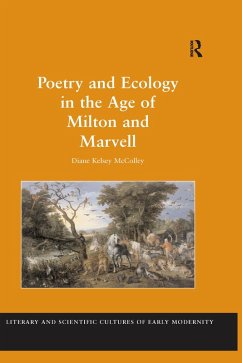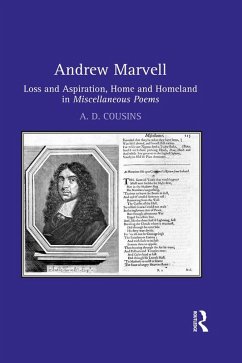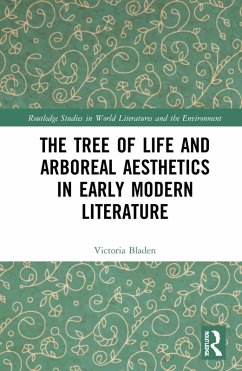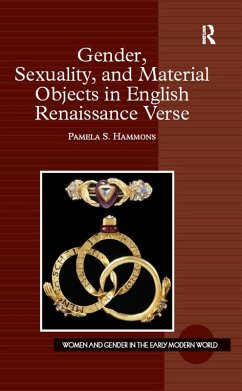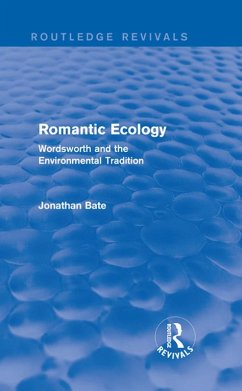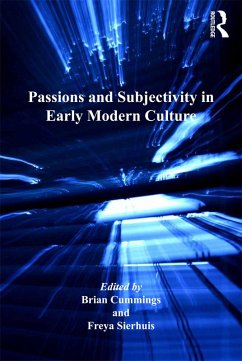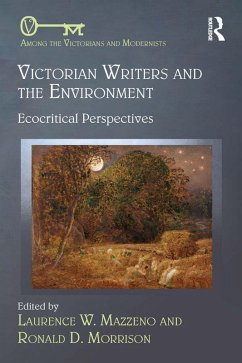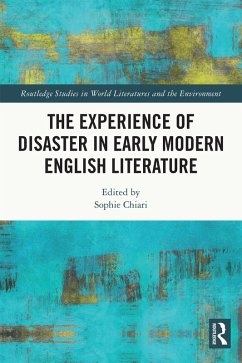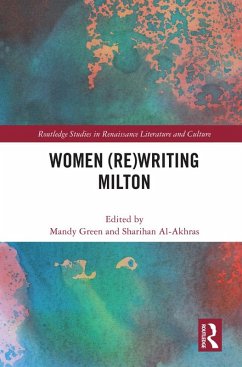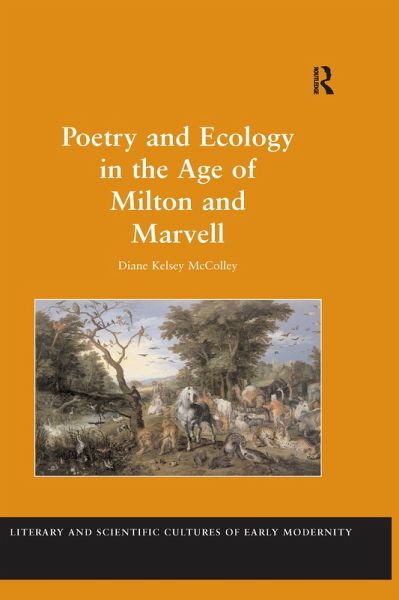
Poetry and Ecology in the Age of Milton and Marvell (eBook, ePUB)
Versandkostenfrei!
Sofort per Download lieferbar
56,95 €
inkl. MwSt.
Weitere Ausgaben:

PAYBACK Punkte
28 °P sammeln!
The focus of this study is the perception of nature in the language of poetry and the languages of natural philosophy, technology, theology, and global exploration, primarily in seventeenth-century England. Its premise is that language and the perception of nature vitally affect each other and that seventeenth-century poets, primarily John Milton, Andrew Marvell, and Henry Vaughan, but also Margaret Cavendish, Thomas Traherne, Anne Finch, and others, responded to experimental proto-science and new technology in ways that we now call 'ecological' - concerned with watersheds and habitats and the...
The focus of this study is the perception of nature in the language of poetry and the languages of natural philosophy, technology, theology, and global exploration, primarily in seventeenth-century England. Its premise is that language and the perception of nature vitally affect each other and that seventeenth-century poets, primarily John Milton, Andrew Marvell, and Henry Vaughan, but also Margaret Cavendish, Thomas Traherne, Anne Finch, and others, responded to experimental proto-science and new technology in ways that we now call 'ecological' - concerned with watersheds and habitats and the lives of all creatures. It provides close readings of works by these poets in the contexts of natural history, philosophy, and theology as well as technology and land use, showing how they responded to what are currently considered ecological issues: deforestation, mining, air pollution, drainage of wetlands, destruction of habitats, the sentience and intelligence of animals, overbuilding, global commerce, the politics of land use, and relations between social justice and justice towards the other-than-human world. In this important book, Diane McColley demonstrates the language of poetry, the language of responsible science, and the language of moral and political philosophy all to be necessary parts of public discourse.
Dieser Download kann aus rechtlichen Gründen nur mit Rechnungsadresse in A, B, BG, CY, CZ, D, DK, EW, E, FIN, F, GR, HR, H, IRL, I, LT, L, LR, M, NL, PL, P, R, S, SLO, SK ausgeliefert werden.




